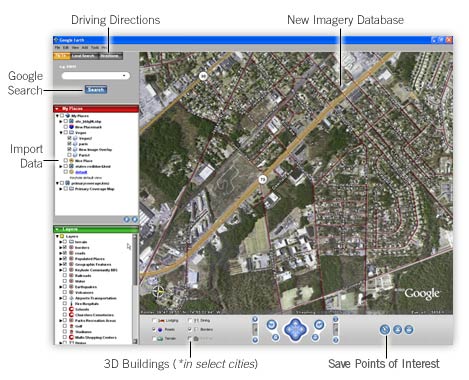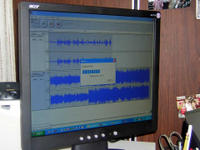This
article from the NY Times (you'll need to register if you want to read the whole article) mirrors of number of experience and issues that I've been faced with lately. As the
Web 2.0 continues to grow and encourage open discussion, conversation and yes, debate, there are several examples where this philosophy is not embraced.
The debate in Kansas over evolution typifies what I feel is the anti-thesis of the open source and social software movement. It doesn't matter to me what side of the issue you're on, I see a level of intolerance on both sides to engage in an open discussion of the issue.
Dr. Scott said that until recently she believed scientists should seize opportunities to debate the opponents of evolution. "I was one of the holdouts, saying yes, appear with these guys, yes, tell them what is wrong with their ideas, go to their conferences, treat them like scholars," she said.
Like other scientists, she said that if someone identified a flaw in evolutionary theory that could not be dealt with, science would have to modify the theory or even scrap it. But the criticisms raised have fallen in the face of scientific scrutiny, she and others say, yet opponents of evolution raise them again and again.
So a few years ago, she said, "even I threw in the towel."
"Our willingness to engage their ideas," she went on, "was not being reciprocated."
Dr. West, of the Discovery Institute, argues that scientists have shown the same unwillingness to engage when they talk about evolution. In Kansas, he said, "there was a sort of arrogance - claiming that 'since we are the majority scientific view we don't owe an explanation to anyone, especially these public officials we think are stupid.
I realize this is a very emotional, controversial issue and without dealing with the content of the debate, I know that this "unwillingness to engage" is prevalent in many areas of society and in particular education. I recently (yesterday) questioned someone about the use of a particular technology in our province. I was basically told that this is the decision that was made and you don't need to know why
(a few of my readers will know what I'm referring to).
Now I understand there are times in life when you need to stop asking why and just get on with the task. I use this a lot with my kids but at the same time, an effective organization is characterized by an openness to
intense dialogue and debate. At some point, a decision has to be made but not until all voices are heard.
I understand that with a debate like evolution vs. intelligent design that consenus is not realistic. But to not engage in the discussion seems wrong.
My involvement with RSS, blogging and all the other tools of the Web 2.0, enable me to read, listen and watch the ideas of a variety of people. Most I agree with but I'm always interested when intelligent people disagree and can do it without prejudice. Allowing individuals to make an informed decision on any topic seems to be the foundation of a democratic society. With respect to my personal issues, that's all I'm asking.









